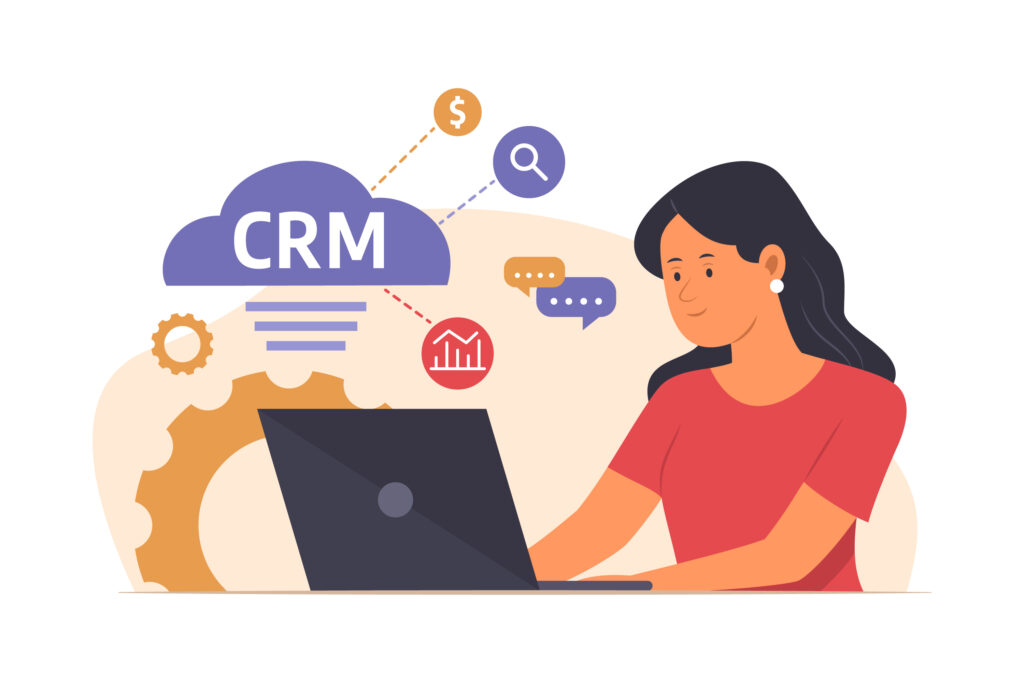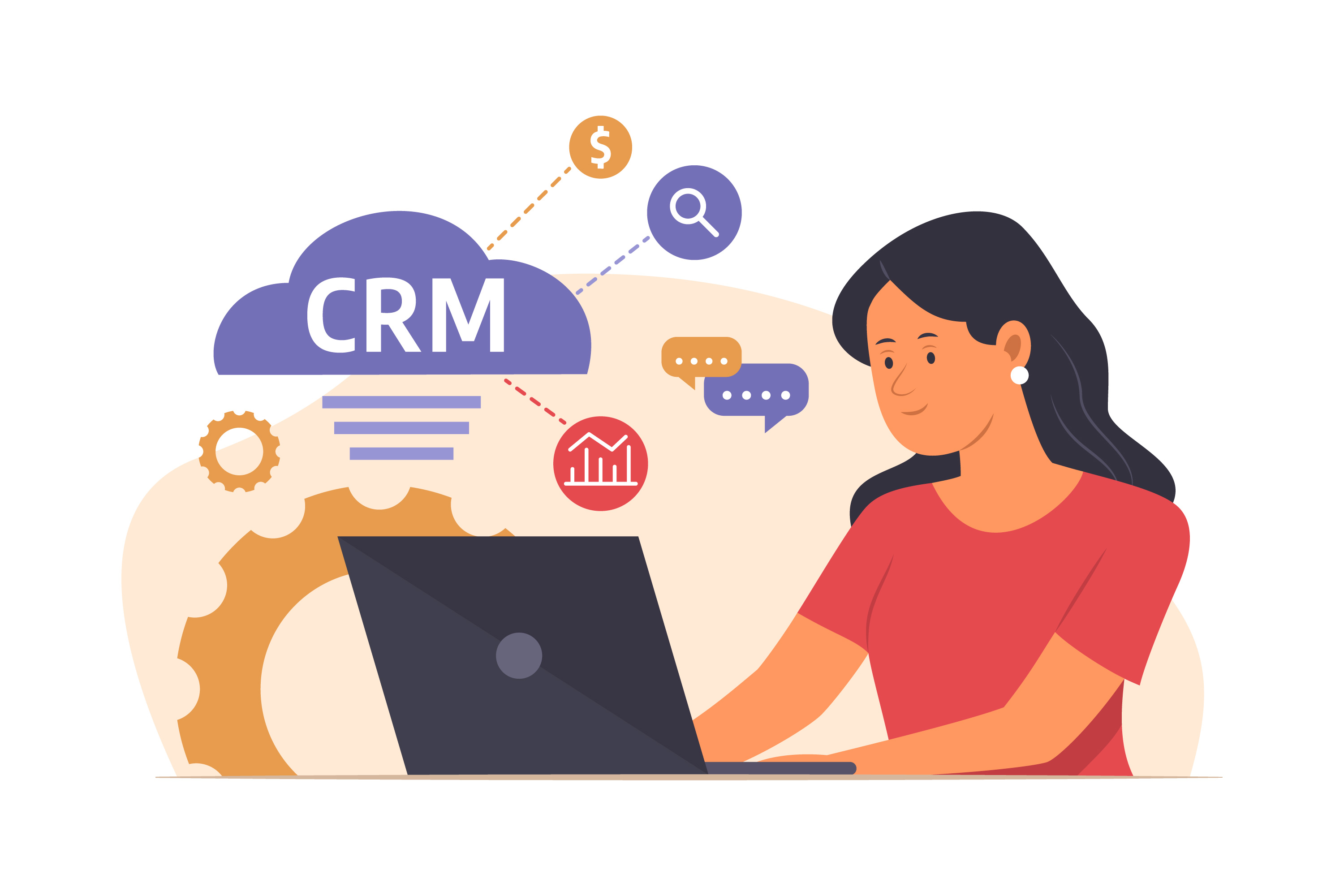Customer relationship management systems have become a vital aspect of business for organizations of all sizes and industries. From fledgling startups to large corporations, implementing a system can optimize processes, enhance customer experience, and boost revenue. But with the numerous options available, it can be challenging to determine the right fit for your business. In this article, we’ll delve into the benefits of such systems and help you decide if it’s a worthy investment. In this article, you will learn why do you need a CRM for your business.
What is a CRM?

A CRM is a software solution that helps businesses manage their interactions and relationships with customers. It combines various tools and features such as lead and opportunity management, contact management, sales forecasting, marketing automation, and customer service management, into one centralized platform.
Why do you need one?
Improved Customer Satisfaction: It allows you to store all customer information in one centralized location, giving you a complete view of each customer’s history and interactions with your business. This makes it easier for your team to provide personalized, informed, and efficient customer service, leading to increased customer satisfaction.
Increased Sales: It provides a complete view of each sales opportunity, including all the relevant information, communication history, and progress. This helps sales teams close deals faster, increase their productivity, and ultimately, increase sales.
Better Collaboration: It allows all departments, including sales, marketing, and customer service, to access and share customer information. This improves collaboration, eliminates silos, and helps your team work more efficiently.
Increased Efficiency: It automates many manual processes, such as data entry, lead nurturing, and follow-up tasks. This saves time and reduces the risk of errors, allowing your team to focus on more strategic tasks.
Improved Data Insights: It collects data on customer interactions and behaviors, providing valuable insights into customer preferences and buying patterns. This information can be used to improve marketing and sales strategies, leading to increased revenue and customer satisfaction.
Additional readings:
How to choose the right CRM for your business?
Determine your business requirements: Before selecting a CRM, it’s important to determine what your business needs. Consider the size of your team, the industries you serve, and the types of customers you have. This will help you choose what best fits your business needs.
Evaluate features: Look for a CRM that includes the features you need, such as lead and opportunity management, marketing automation, and customer service management. It’s also important to consider the level of customization and integration with other tools and platforms.
Consider scalability: Choose a CRM that can grow with your business. As your business expands, you will need a CRM that can accommodate more users, more customers, and more data.
Review customer reviews and ratings: Read customer reviews and ratings of different CRM systems to determine the experiences of others and to find one that is a good fit for your business.
Evaluate costs: It can range from free to thousands of dollars per month. Consider the cost and ensure it fits within your budget.
It significantly improve the efficiency and productivity of your business, leading to increased sales and customer satisfaction. When considering a CRM, it’s important to determine your business requirements, evaluate features, consider scalability, review customer reviews and ratings, and evaluate costs.
Here are three examples of how a CRM system has helped businesses in different industries improve their operations.
Retail Industry: A leading retail company implemented a CRM system to manage their customer interactions and sales processes. This allowed the company to track customer purchases and preferences, resulting in improved personalized marketing campaigns and increased sales. It also improved collaboration between the sales and marketing teams, leading to more efficient and effective promotions.
Healthcare Industry: A healthcare organization implemented a CRM to manage patient interactions and improve patient satisfaction. It provided a centralized location for patient information, making it easier for healthcare professionals to access patient history and provide informed care. It also improved collaboration between healthcare teams, leading to faster and more efficient treatment.
Financial Services Industry: A financial services company implemented a CRM to manage their sales and customer service processes. It allowed the company to track customer interactions, leading to improved customer service and increased sales. It also improved collaboration between the sales and customer service teams, leading to faster resolution of customer issues and increased customer satisfaction.
Construction: Construction companies can use a CRM to manage their customer interactions and project management processes. It can provide a centralized location for project information, making it easier for teams to access project history and provide informed service. It can also improve collaboration between teams, leading to more efficient and effective project management processes.
Education: Educational institutions can use a CRM to manage their student and alumni interactions. It can provide a centralized location for student and alumni information, making it easier for institutions to access student and alumni history and provide informed service. It can also improve collaboration between teams, leading to more efficient and effective student and alumni outreach processes.
Non-Profit: Non-profit organizations can use a CRM to manage their donor and volunteer interactions. It can provide a centralized location for donor and volunteer information, making it easier for organizations to access donor and volunteer history and provide informed service. It can also improve collaboration between teams, leading to more efficient and effective donor and volunteer outreach processes.
Manufacturing: Manufacturing companies can use a CRM to manage their customer and supplier interactions. It can provide a centralized location for customer and supplier information, making it easier for teams to access customer and supplier history and provide informed service. The CRM can also improve collaboration between teams, leading to more efficient and effective sales and procurement processes.
Technology: Technology companies can use a CRM to manage their customer interactions and support processes. The CRM can provide a centralized location for customer information, making it easier for teams to access customer history and provide informed service. The CRM can also improve collaboration between teams, leading to more efficient and effective support processes.
Hospitality: Hospitality companies can use a CRM to manage their customer interactions and sales processes. The CRM can provide a centralized location for customer information, making it easier for teams to access customer history and provide informed service. The CRM can also improve collaboration between teams, leading to more efficient and effective sales processes.
Transportation: Transportation companies can use a CRM to manage their customer interactions and logistics processes. The CRM can provide a centralized location for customer information, making it easier for teams to access customer history and provide informed service. The CRM can also improve collaboration between teams, leading to more efficient and effective logistics processes
In each of these industries, a CRM system has helped businesses improve customer satisfaction, increase sales, and improve collaboration between teams, leading to increased efficiency and effectiveness.




